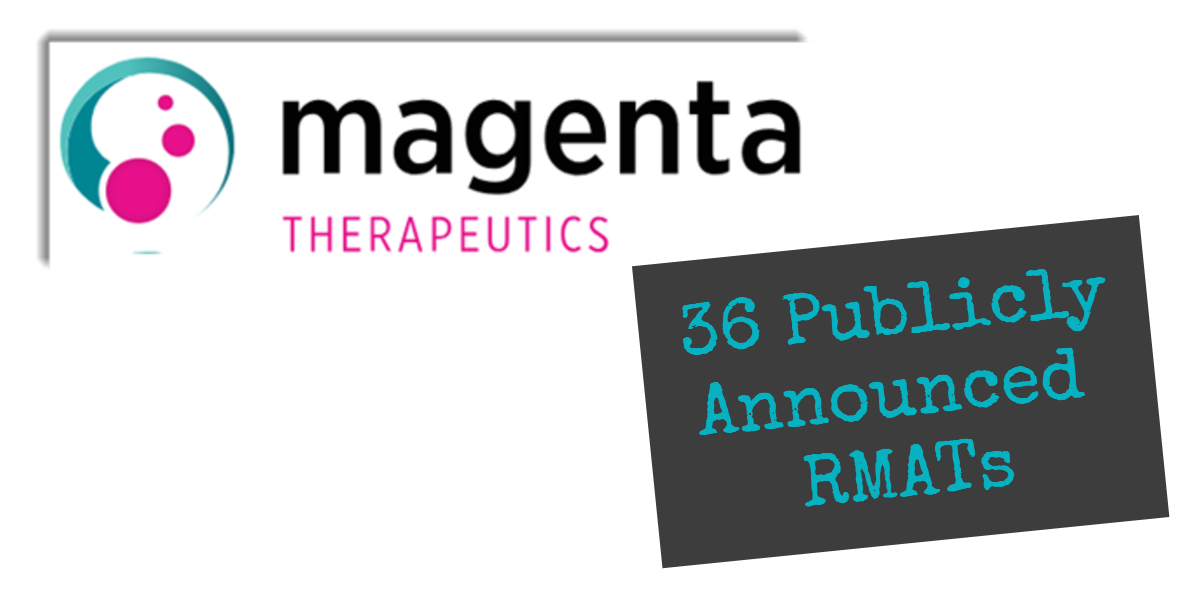On September 4, 2019, Magenta Therapeutics announced it had received an FDA Regenerative Medicine Advance Therapy (RMAT) designation for MGTA-456, an expanded CD34+ cell therapy treatment used in place of single umbilical cord blood (UCB) transplantation. This one-time stem cell treatment is being investigated for the treatment of multiple inherited metabolic disorders. While there are 36 publicly announced RMAT designations, the FDA states that 40 or more have been awarded to date.
Magenta Therapeutics’ RMAT for MGTA-456
Sponsors of cell and gene therapies are eligible to obtain an RMAT designation from the U.S. FDA if their product is intended to treat serious or life-threatening diseases and there is preliminary clinical evidence that it can address unmet medical needs.
MGTA-456 appears to meet this criteria, as there is preliminary evidence that it may the progression of inherited metabolic disorders by administering a high dose of stem cells to support the patient’s immune system.
Magenta Therapeutics is now evaluating MGTA-456 in a Phase 2 clinical trial in patients aged 6+ months to 16 years old with:
- Hurler syndrome
- Cerebral adrenoleukodystrophy (cALD)
- etachromatic leukodystrophy (MLD)
- Globoid cell leukodystrophy (GLD)
It is being tested at the following medical sites: 1) Cincinnati Children’s Hospital, 2) Duke University, 3) Emory University and 4) University of Minnesota.
Clinical Description of MGTA-456
Magenta Therapeutics’ Phase 2 trial will involve hematopoietic stem cell transplantation (HSCT) performed with MGTA-456, its expanded cell therapy product. The trial will enroll 12 patients.
As stated in its Clinical Trial description (NCT03406962) :
“MGTA-456 is an expanded CD34+ cell therapy product candidate given to induce rapid and sustained hematopoietic engraftment. In patients with selected [inherited metabolic disorders], transplant is expected to replace defective or missing protein and preserve neurodevelopment. Since MGTA-456 offers increased numbers of HSCs over standard umbilical cord blood, it is expected to reduce the risks of prolonged neutropenia and thrombocytopenia and graft failure, and potentially transplant-related mortality (TRM).”
As stated by Magenta’s CMO, John Davis, M.D., M.P.H.:
“This RMAT designation was based on the encouraging clinical data we have presented thus far, and it is an important milestone that recognizes the transformative, life-saving potential of MGTA-456 for children suffering from inherited metabolic disorders.”
Magenta’s next steps are to complete its ongoing Phase 2 study and move into pivotal studies in 2020. Click here to see a full list of RMAT designations maintained by BioInformant.
Do you have questions about Magenta’s RMAT designation for MGTa-456? If so, share them in the comments below.




















Tell Us What You Think!